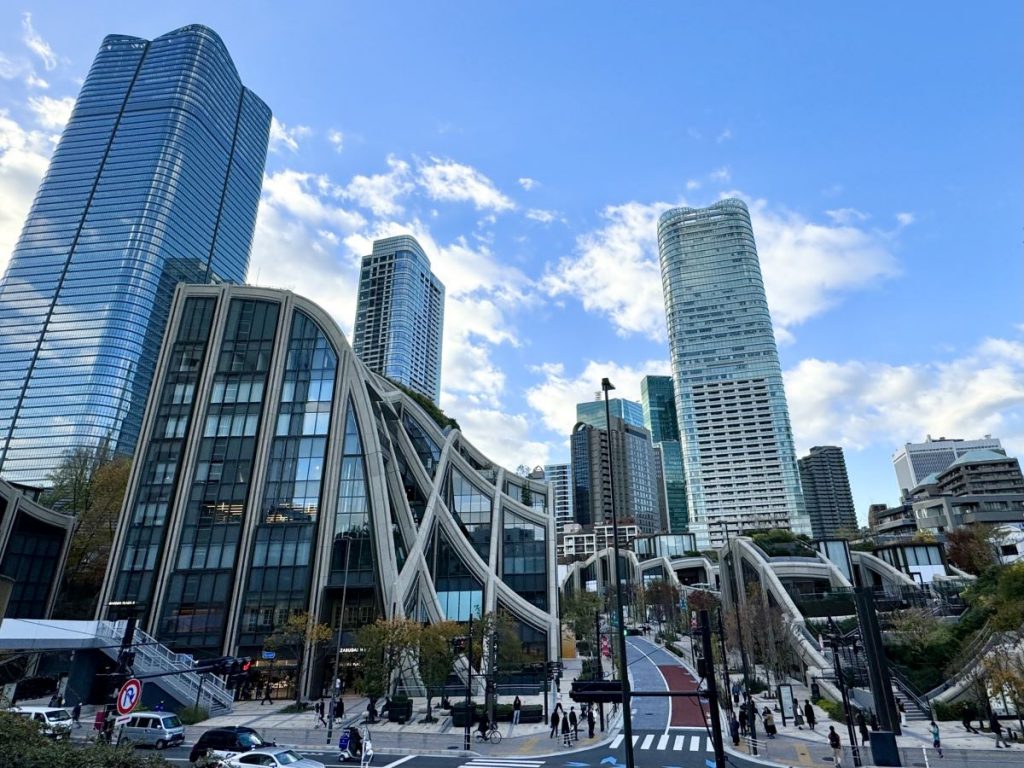このページを 日本語 で読む
The winners of the 32nd Global Environment Awards have been announced. The awards recognize companies and organizations for their efforts and achievements in global warming mitigation and the Sustainable Development Goals (SDGs). Mori Building won the coveted grand prize for the rich green spaces and advanced systems installed in its high-rise buildings in central Tokyo.
Winners will officially receive their awards at a ceremony scheduled for April 4 at The award ceremony will be held on April 4th at the Meiji Kinenkan Hall in Tokyo.
Green Spaces and Advanced Technologies
Mori Building opened Toranomon Hills Station Tower in October 2023 and Azabudai Hills in November of the same year. Both incorporate biodiversity-rich green spaces and streams, including rooftop gardens and terraces. The buildings were designed to contribute to realizing a sustainable society through community building.
32nd Global Environment Awards
Winning Companies and Organizations
The Minister of Economy, Trade and Industry Prize went to Ricoh. The company launched cutting-edge eco-friendly multifunction printer/copier devices. The devices' total CO2 emissions reduction totals roughly 88,000 tons annually.
Toray was the recipient of the Environmental Minister's Prize. Toray was recognized for contributing to water shortages around the world with its water treatment membrane technology. Water treatment plants in over 100 countries have adopted the technology.
The Minister of Education, Culture, Sports, Science and Technology Prize went to Miyagi Prefecture Agriculture High School. The school launched an initiative to abolish fertilizers made using plastics that are potentially harmful to marine ecosystems and the environment.
Reducing Emissions
Kajima Corporation was awarded the Minister of Land, Infrastructure, Transport and Tourism Prize. The award commends the company for its contribution to emissions reduction by solidifying large amounts of CO2 in concrete.
The Minister of Agriculture, Forestry and Fisheries Prize went to the "Project on creation of seaweed bed using recycled materials in Shinto, Iwakuni City." The project team is comprised of the Kojiro Fisheries Cooperative of Yamaguchi Prefecture, National Institute of Technology Ube College, and JFE Steel). The project promotes the creation of seaweed habitats and ecosystems using recycled materials.
NTT West was the recipient of the Minister of Internal Affairs and Communications Prize. The company has contributed to achieving carbon neutrality through the measurement and analysis of forest information using digital technology.
The Chair of Keidanren (Japan Business Federation) Prize will go to Unicharm for manufacturing disposable diapers from recycled diapers. EcoRing was the recipient of the Chair of Japan Chamber of Commerce and Industry Prize. The company incorporated a function into its app to convey individuals' CO2 emission reductions.
The Fujisankei Communications Group Prize went to Sekisui Chemical for its circular model of housing that controls CO2 emissions both during and after construction.
このページを 日本語 で読む
